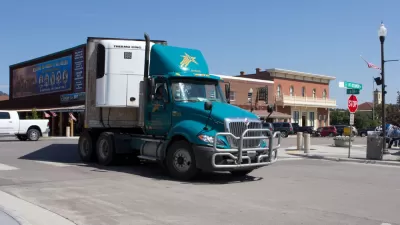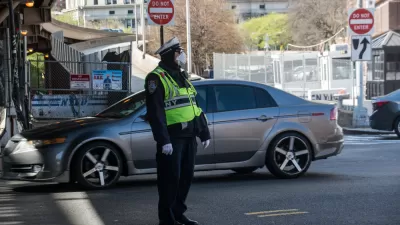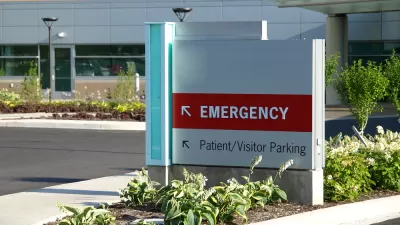Part I was shutting down the economy on a multi-state basis in the absence of federal leadership. Part II will be opening them up in spite of federal assertiveness.

On March 16, two days after New York saw its first fatality due to COVID-19, Gov. Andrew Cuomo (D-N.Y.) enlisted the help of the governors of neighboring New Jersey and Connecticut to ensure that social distancing measures had some uniformity, i.e., they didn't stop at the state borders of the Tri-State region.
By the week's end, all three states, plus Pennsylvania and Delaware, had issued stay-at-home orders as it became increasingly clear that infections were spreading. Since then, the nation has lost over 25,000 lives to the lethal coronavirus, with more than half from New York (almost 11,000 as of April 13) and New Jersey (almost 2,500).
"Speaking on a conference call, the governors of New York, New Jersey, Connecticut, Pennsylvania, Delaware and Rhode Island agreed that it was essential to work together in developing plans to reopen businesses, schools and public transportation after weeks on lockdown," report Marie J. French and Anna Gronewold for POLITICO New York on April 13.
Several hours later, Massachusetts Gov. Charlie Baker (R) announced that the commonwealth will join the group.
The announcement came as President Donald Trump asserted on Monday afternoon that he, not the governors, would decide when stay-at-home orders could be lifted.
A parallel collaboration of governors was revealed an hour when "Gov. Gavin Newsom (D-Calif.) and his counterparts in Washington and Oregon announced 'a regional pact to recovery' from the coronavirus crisis on Monday and agreed to work together to develop a plan to lift restrictions on daily life and reopen economies along the West Coast," reports Taryn Luna for the Los Angeles Times.
“We need to see a decline in the rate of spread of the virus before large-scale reopening, and we will be working in coordination to identify the best metrics to guide this,” the governors said.
The statement also laid out four shared goals to control the virus: protecting vulnerable populations, ensuring the states have enough equipment and hospital workers to provide adequate care, lessening health effects as a result of state orders and developing a strategy to test, track and isolate cases.
In addition to the governors collaborating within their two regional groups, they have also cooperated amongst each other, with all three Western governors having sent ventilators last week to New York as they have "flattened their curves" better than their East Coast counterparts.
Hat tip to Renuka Rayasam, POLITICO Nightly: Coronavirus Special Edition.
Related in Planetizen:
- The New Regionalism of the Coronavirus Pandemic, March 19, 2020
FULL STORY: Northeast governors planning regional economic restart

Maui's Vacation Rental Debate Turns Ugly
Verbal attacks, misinformation campaigns and fistfights plague a high-stakes debate to convert thousands of vacation rentals into long-term housing.

Planetizen Federal Action Tracker
A weekly monitor of how Trump’s orders and actions are impacting planners and planning in America.

In Urban Planning, AI Prompting Could be the New Design Thinking
Creativity has long been key to great urban design. What if we see AI as our new creative partner?

King County Supportive Housing Program Offers Hope for Unhoused Residents
The county is taking a ‘Housing First’ approach that prioritizes getting people into housing, then offering wraparound supportive services.

Researchers Use AI to Get Clearer Picture of US Housing
Analysts are using artificial intelligence to supercharge their research by allowing them to comb through data faster. Though these AI tools can be error prone, they save time and housing researchers are optimistic about the future.

Making Shared Micromobility More Inclusive
Cities and shared mobility system operators can do more to include people with disabilities in planning and operations, per a new report.
Urban Design for Planners 1: Software Tools
This six-course series explores essential urban design concepts using open source software and equips planners with the tools they need to participate fully in the urban design process.
Planning for Universal Design
Learn the tools for implementing Universal Design in planning regulations.
planning NEXT
Appalachian Highlands Housing Partners
Mpact (founded as Rail~Volution)
City of Camden Redevelopment Agency
City of Astoria
City of Portland
City of Laramie





























